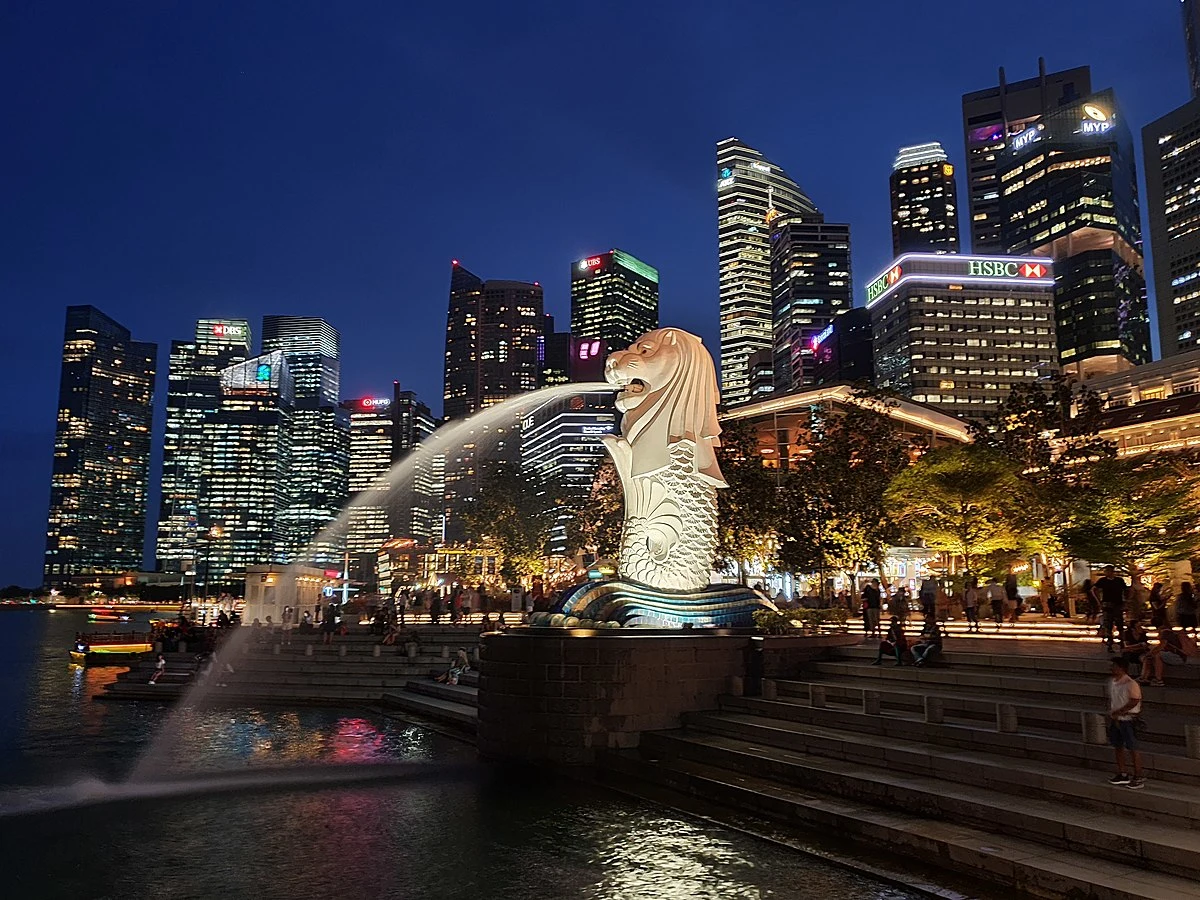You’ll have a hard time finding a more awesome national symbol than the one of this city-state.
In this post, you’ll discover the ultimate list of interesting facts about the Merlion, one of the most fascinating sights in Singapore!
1. It represents a mythical creature with a deeper meaning
The Merlion is a mythical creature that serves as the national symbol of Singapore. It has the head of a lion and the body of a fish and statues of it can be found in several locations in the city.
The name “Merlion” is a combination of “mer,” which means “sea,” and “lion,” referring to the mighty big cat.
This again is a reference to the origin of Singapore as a fishing village. Back in the day, it was called “Temasek,” which means “Sea Town” in Javanese. The original name of the city was “Singapura,” which means “Lion City.”

2. It’s the ultimate patriotic emblem of Singapore
One of the most remarkable facts about the Merlion is that it didn’t start out as the ultimate patriotic symbol of Singapore. It was originally designed to serve as the logo of the Singapore Tourism Board (STB) and was used as such between 1964 and 1997.
It was designed in the 1960s by Alec Fraser-Brunner, a British ichthyologist who served as a member of the Souvenir Committee and who worked at the former “Van Kleef Aquarium.”
Little did the man know back then that he created the ultimate national personification of Singapore!
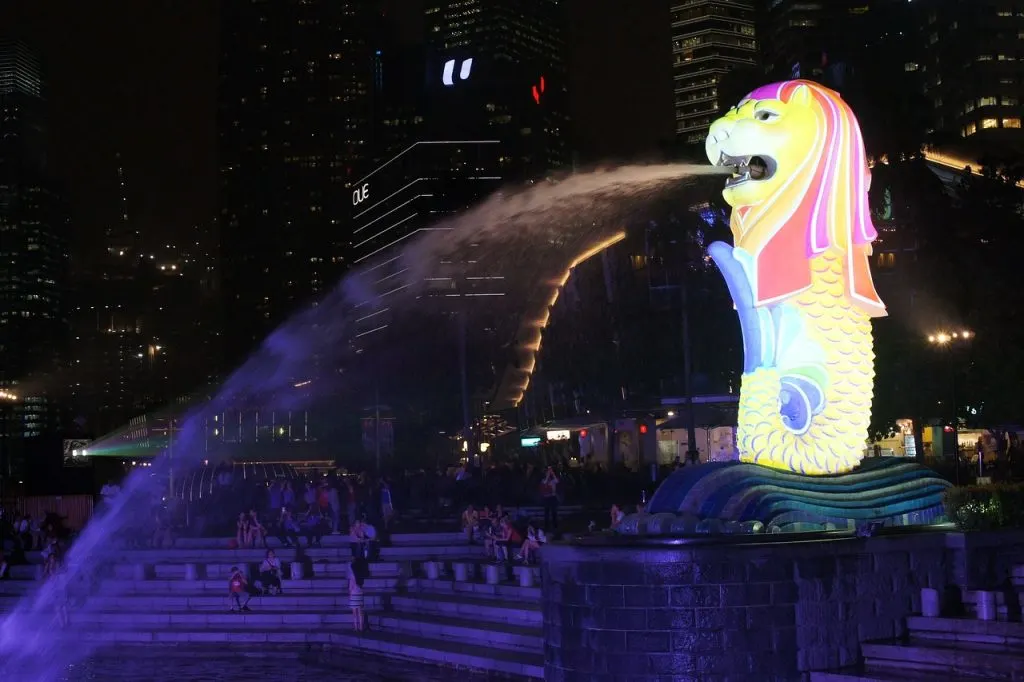
3. You can’t just use the Merlion symbol anywhere
Even though the Merlion seized to be used as the logo of the Singapore Tourism Board (STB), it was trademarked in 1966 and is still protected. This means that you can’t just go ahead and create souvenirs with a picture of a Merlion and sell them!
This means that the souvenirs and other items you do see being sold are either illegal or approved by the STB.
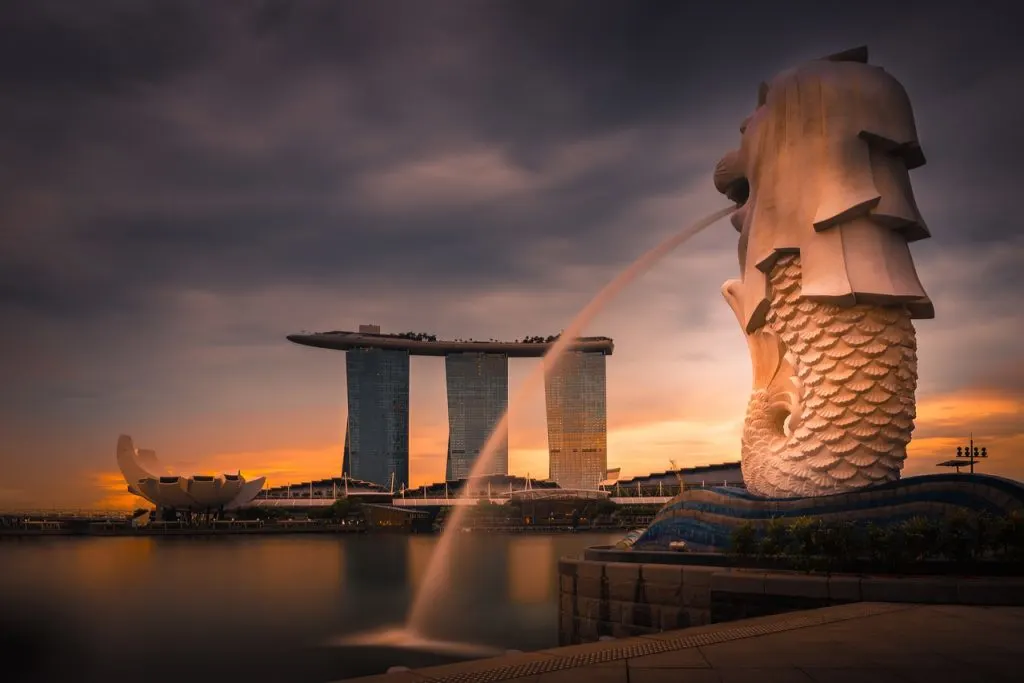
4. The original statue was located somewhere else
The most famous Merlion statue in Singapore, the one located in “Merlion Park,” was originally located at the mouth of the Singapore River in an area now referred to as “Waterboat House Garden.”
It was created between November 1971 and August 1972 and has a height of 8.6 meters and weighs 70 tonnes (70,000 kilos).
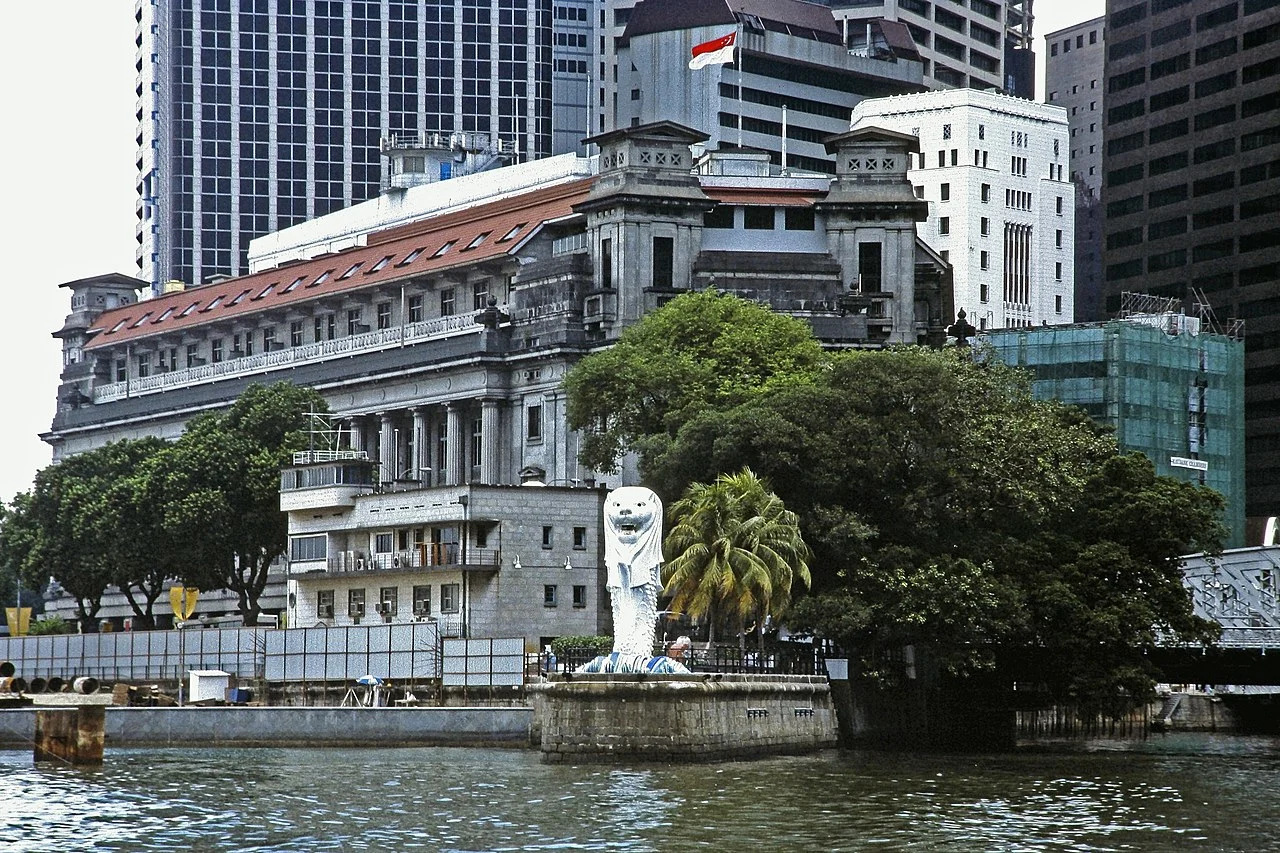
5. It was relocated in 2002 on a piece of reclaimed land
The statue remained in this location until the early 2000s. It was relocated because the Esplanade Bridge that spans the Singapore River blocked its view and because this area wasn’t the entrance of the Singapore River anymore.
That’s why the Singaporean government started looking for a location better suited to house the ultimate symbol of the city, which they found just 120 meters further in a little piece of reclaimed land that is now referred to as Merlion Park.
This little area of reclaimed land fronts Marina Bay and the statue stands proudly in front of the iconic Fullerton Hotel.
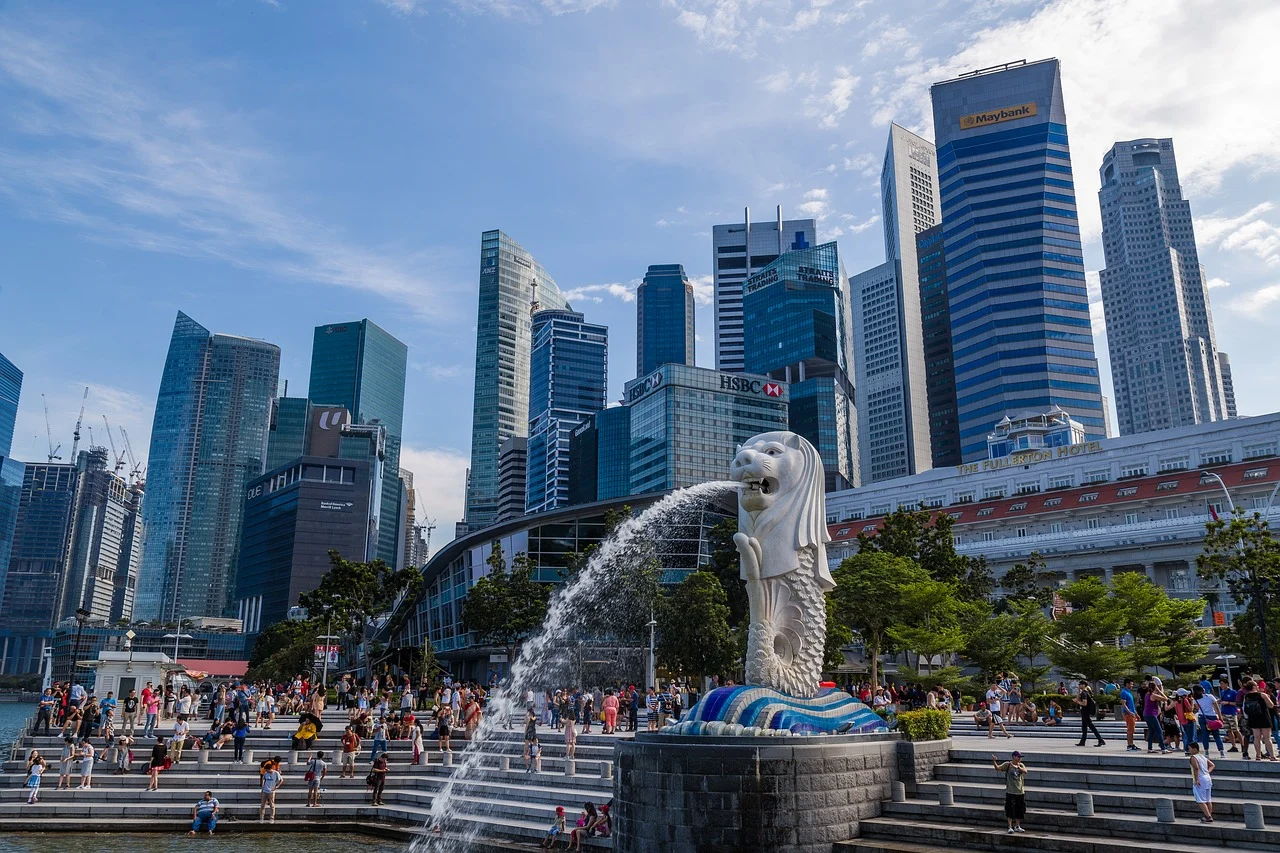
6. The Prime Minister from 1972 welcomed the statue yet again
One of the most interesting facts about the Merlion is that the Prime Minister who inaugurated the statue in 1972, a man named Lee Kuan Yew (1923-2015), was called for duty again to inaugurate the same statue on its new location in 2002!
We’re pretty sure that he liked the new location much better as well!
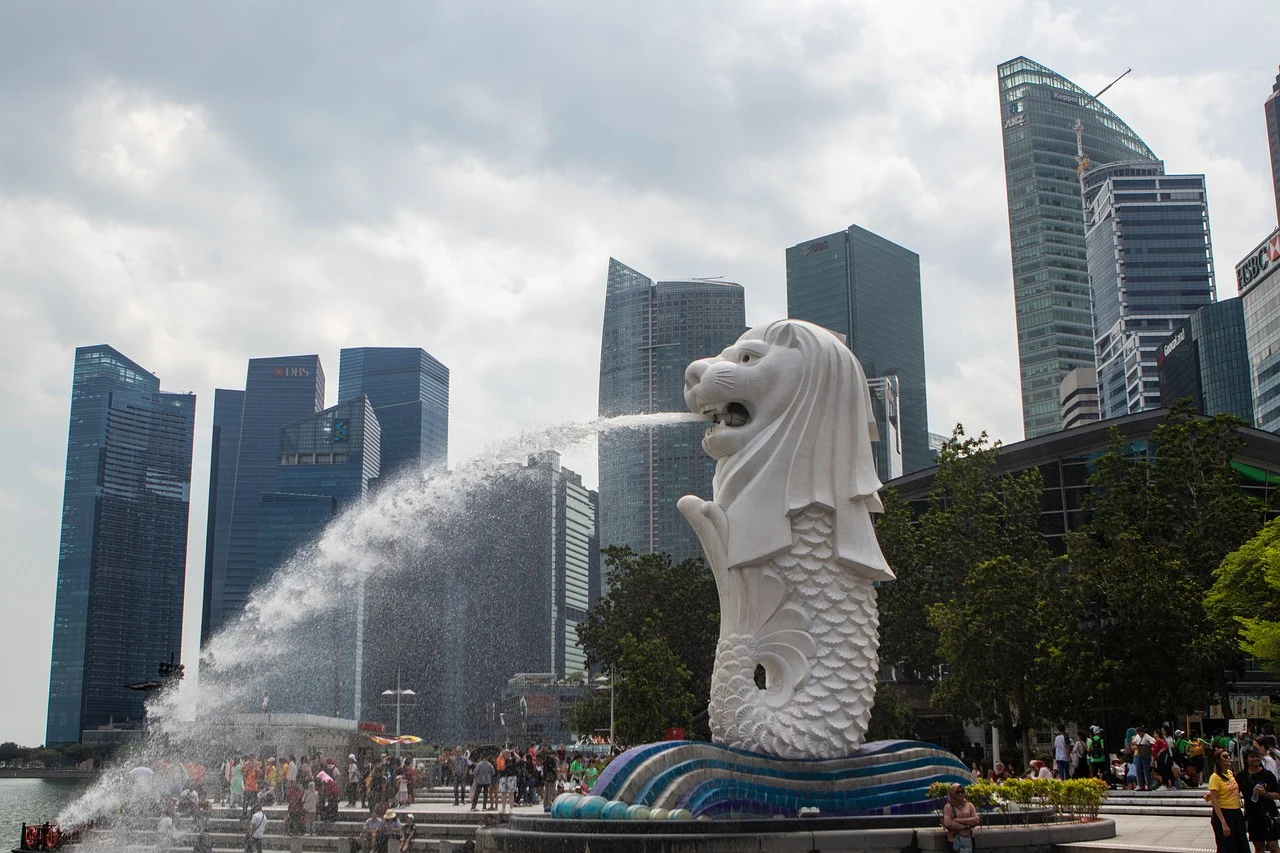
7. There are 5 more Merlion statues in Singapore
The same rules as with souvenirs apply to statues, as only STB-approved statues can be displayed on the streets of Singapore. That means that only a limited number of statues can be found.
There are 4 other statues apart from the most iconic one that was built in 1972, that are approved by the STB:
- Merlion cub – A smaller version (2 meters tall) of the iconic statue located just nearby.
- Polymarble statue at Tourism Court – 3 meters tall and completed in 1995.
- Polymarble statue on Mount Faber – 3 meters tall and located on Faber Point.
- Ang Mo Kio Avenue – A pair of Merlions completed in 1999.
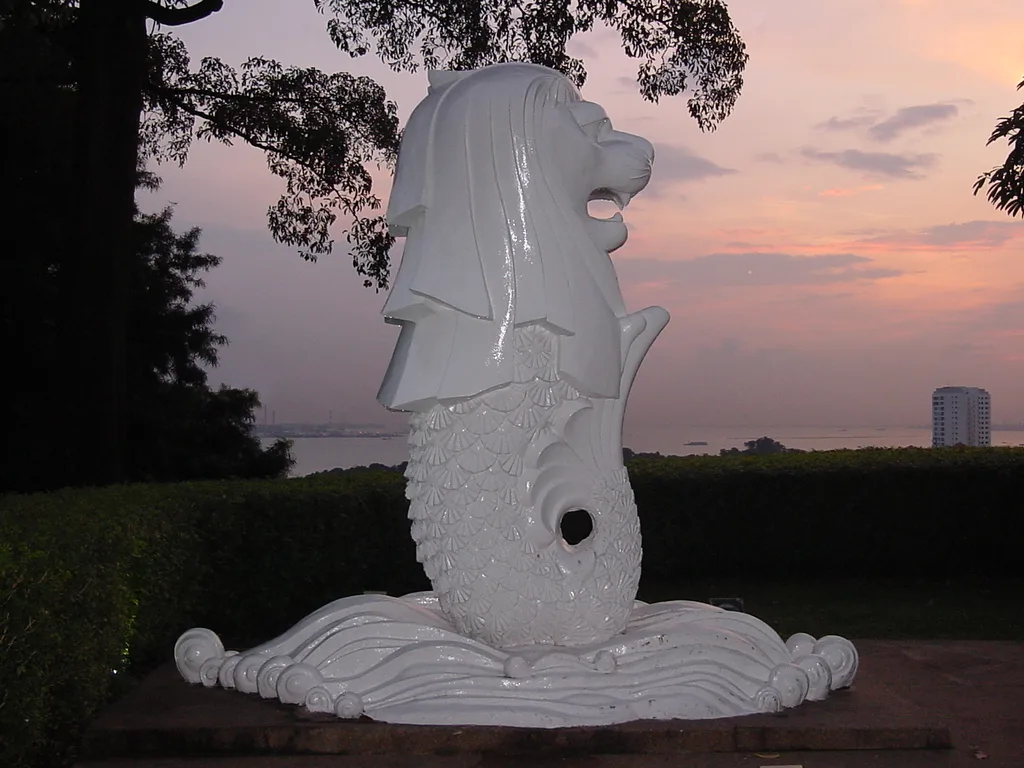
8. It’s pointed east because of a particular reason
Did you notice that the famous Merlion statue is looking at no particular landmark in the near distance (even though the Helix Bridge and Marina Bay Sands in the distance come close)?
That’s because it’s positioned in such a way that it points directly to the east.
The reason for this is the traditional Chinese practice of Feng Shui, which claims that this is the direction that will bring the most success!
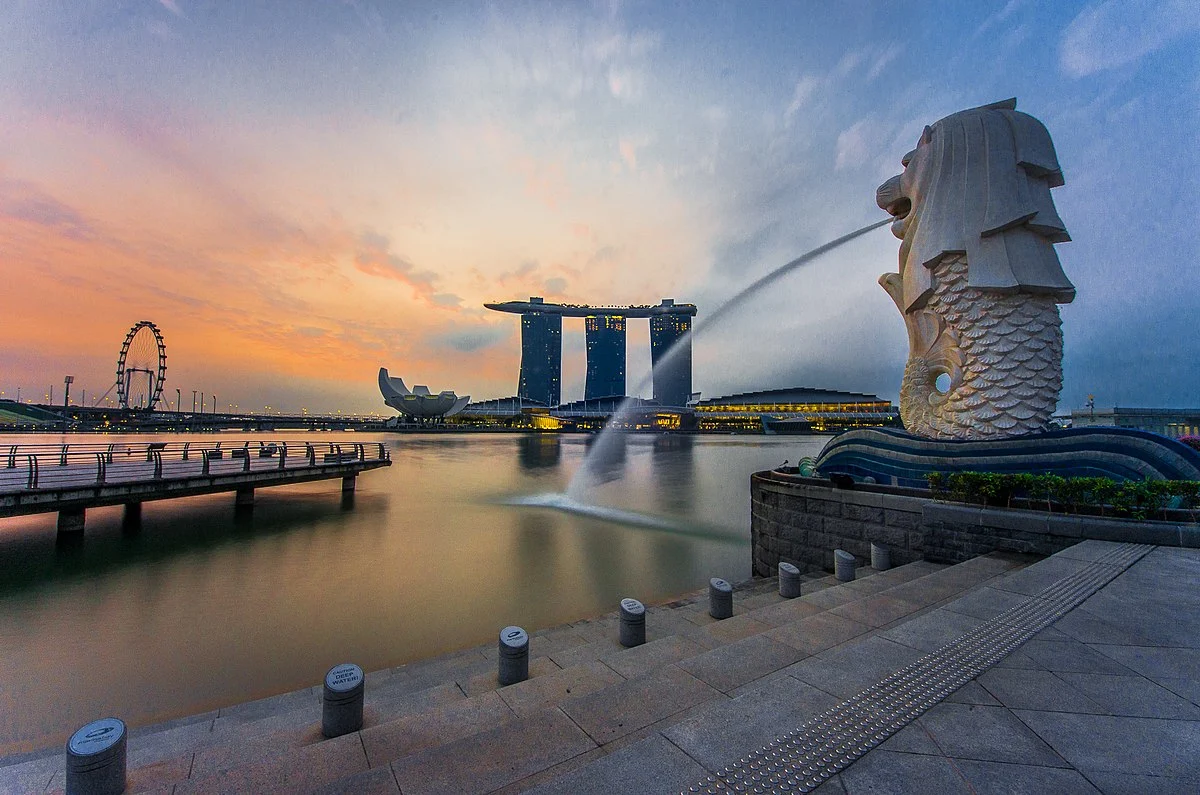
9. They didn’t take any risk with the water pump of the statue
Did you know that the Merlion statue stopped shooting water out of its mouth in 1998 when it was still located in its old location? That’s because the water pump that made this happen broke down!
They did whatever they could to avoid this, so the Singaporean Government didn’t just spend S$7.5 million to install a world-class water pump system, but also a backup unit nearby!
This means that there is no reason for the statue to stop shooting water into Marina Bay!
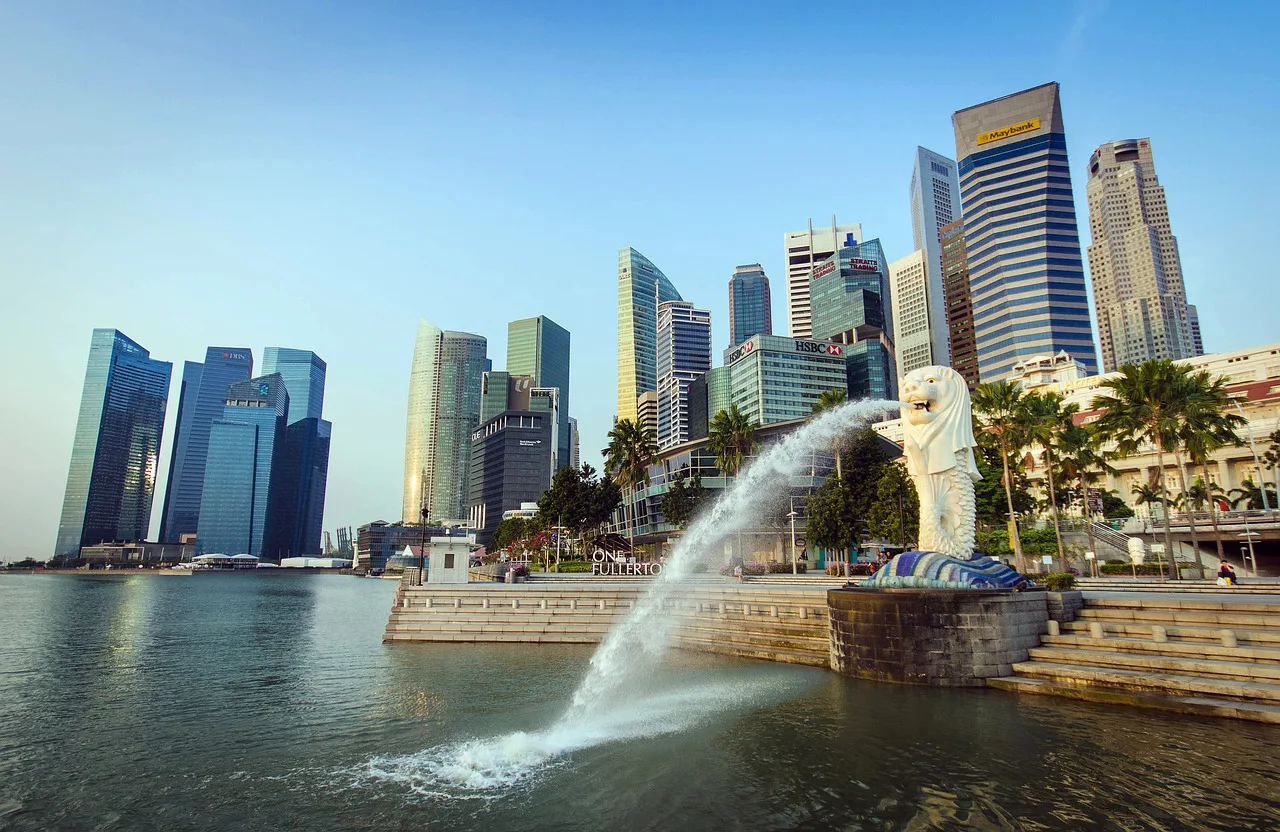
10. Merlion Park is one of the most picturesque locations in Singapore
If you ever visit Singapore, then Merlion Park should be on the top of your bucket list! Even though the statue looks quite amazing itself, the location it’s positioned in is pretty incredible.
Especially at night, this becomes one of the most picturesque locations in a city full of marvelous spots already!
